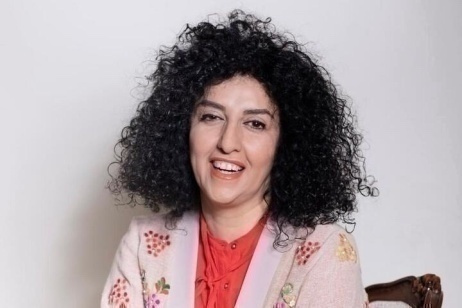On the Holocaust Memorial Day Jews and non-Jews alike find themselves wondering once again whether the time that separates us from that tragedy may cause it to fade from memory and whether the few remaining witnesses will take its moral warning with them when they pass on.
It is an important issue and one that David Bidussa addresses in his latest essay After the last witness. I, however, am still convinced that there has never been such widespread and generalized debate about the Holocaust as there is today. I am also sure that what Jan Karski – the Polish resistance envoy who tried in vain to alert the Western powers to the genocide unfolding – defined as mankind’s second original sin, was of such enormity that no amount of squalid detractors such as Iran’s president Ahmadinejad will ever be able to erase it.
One more complex question in our time – too seldom reflected upon – is of a different nature: what to remember and how to remember?
We can, in fact, celebrate endless commemorations, but then feel a void when we realize that our words are rhetorical and empty and that we are simply performing a ritual that exempts us from any responsibility.
Yes, because memory without choice and without responsibility elevates our souls and clears our consciences, persuading us that we are better and that in such dire circumstances we would have behaved differently.
Memory as an alibi for our own conscience is the worst thing.
We decided to dedicate 22 January to three exemplary figures: Marek Edelman, Vasilij Grossman and Guelfo Zamboni, because each of them touches a theme that can help us to deal with this enigma.
We have indicated them as moral figures to be honoured in our city with a tree in the Garden of the Righteous because theirs are outstanding examples of responsible memory.
Marek Edelman was already assured a place in history. He was the deputy commander of the revolt in the Warsaw Ghetto. He could have become an icon of Judaism, moved to Israel and stood as a witness of an immortal page in history: the resistance of the Jews who, to defend their dignity before the Nazis, chose to fight to what they knew full well would be the bitter end. Hollywood would have made a film about their stand, Israel would have dedicated a square to Edelman in every town and city and he would have become an ambassador of the Jews’ indomitable resistance against the anti-Semites.
But Edelman preferred not to be cast as a popular hero. He was not a Zionist, he decided to stay on in Poland and to watch over the memory of a country that had witnessed the annihilation of the largest Jewish community in Europe.
“I am here”, he was wont to say, “to guard the tombs of my people.”
And he did so in a country that up until 1989 had minimized the scale of the Jewish tragedy and preferred not to ask itself about the indifference of a large portion of the population during the Holocaust. He experienced popular anti-Semitism first hand and heard the Catholic Church accuse surviving Jews of becoming the longa manus of Communist power. And then in 1968 he saw Gomułka’s party unleash a ferocious political campaign against Jewish intellectuals, charged with infecting and corroding the Socialist system.
And yet he never left Warsaw, perhaps because he hoped that evidence of that unforgivable tragedy would one day educate the new generations. Jewish history in Poland had been irretrievably lost, but it was vital to continue believing in the endless struggle for the dignity of man.
For Edelman, memory without a commitment to safeguarding human rights was senseless. And so he was in the front line of the democratic movements that changed Poland: in the KOR, in Solidarność, in the Civic Committee during the Round Table talks that led to the collapse of Communism. And when war broke out in Bosnia he travelled to Sarajevo to express his solidarity with the besieged city. “You remind me”, he passionately told them, “of the resistance of the Warsaw Ghetto.”
In his magnificent funeral oration, Poland’s emeritus President Tadeusz Mazowiecki said of him: “I have never met such a humble man, who, after achieving so much, allowed so little to be said about himself. He always spoke about others.”
The writer Vasilij Grossman has also provided us with a lesson on how to build responsible memory.
In his capacity as a war correspondent he was one of the first witnesses to enter the Treblinka concentration camp. His was the very first documentation on the Holocaust in Russia in an extraordinary book edited along with Ilja Erenburg: The black book on the genocide of Jews in Nazi-occupied Soviet lands. But the book was stopped and censored by Stalin who was preparing to launch an anti-Semitic campaign against the so-called Zionists and preferred to deflect attention away from the Jewish victims of Nazism. In the USSR at that time only the Soviet victims of Nazism were worthy of mention. This type of censorship – applied in various forms throughout the Soviet bloc – was instrumental in preventing any reflection on the Holocaust from taking place behind the Iron Curtain before 1989, unlike what had happened in western democracies.
Not only was Grossman the first Russian writer to focus in his novels, like Primo Levi, on the mechanism of the grey zone and on the complicity of the population during the Nazi genocide, but he took one further step that remains unique in world literature on the part of a Jew.
With exceptional courage, he compared the Nazi system with the Soviet one: in one of the finest pages of Life and destiny he recounts a conversation between a Communist and a Nazi official, in which the latter explains to him in a German prison that he is not afraid of the defeat of the Third Reich, because even if the Germans lose the war in Russia, in the end their political system will continue to survive in the guise of the Soviet one. There is no great difference, he continues, between the two systems because what they have in common is the elimination of anyone who is “different” and control over people’s souls. The Soviets exterminate the kulaks with the same bestiality as the Nazis.
Grossman examines the various faces of evil and ponders on men’s chance of resisting. He uses an innovative term: senseless goodness. And he contrasts it in the vicissitudes of numerous characters in his book with the “Universal good” of totalitarian systems, which, in the name of a glorious future, justify the worst crimes and even the extermination of human beings.
The message the writer leaves us after experiencing the two totalitarian systems of the 20th century first hand is: practice kindness, love life and defend a taste for the plurality of human beings. For the Russian author this is probably the purpose of memory: to remove political and social hatred from men’s hearts.
The story of Guelfo Zamboni – the Italian consul who successfully rescued three hundred Jews from Nazi-occupied Salonica – offers us a new dimension to responsible memory.
Good has no political, social, ideological or religious colour. The role, function and credo of those who practise it are irrelevant. This was the great merit of the “Corriere” leader writer Antonio Ferrari who – like Hannah Arendt’s beloved pearl divers – obstinately kept trying to bring to light the story of an official of the Italian Fascist regime who was able to listen to his own conscience. In our cultural tradition, Good is too frequently given a political label. People are judged not for what they do, but for their political affiliation. Thus for too many years several stories of exceptional human kindness have been locked away in a drawer.
The Fascist regime was responsible for the racial laws and for persecuting the Jews, but there were certain Italian state officials who, despite serving the regime, helped the Jews and behaved as righteous men. Their memory deserves respect.
Guelfo Zamboni was made of the same stuff as Edelman. He saved scores of lives, but never looked for glory for himself. He disliked rhetoric.
If you would like to leave a comment, write to [email protected]
We will publish the most significant passages of the debate.







